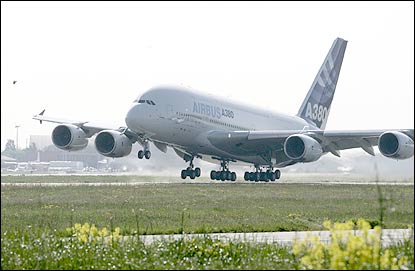

But it has not yet decided which engine supplier to use for the latest order. IndiGo, which accounts for nearly 60% of the Indian domestic market, is keeping Airbus as its supplier of single-aisle jets to squeeze out further economies of scale. Indian carriers now have the second-largest order book, with an over 6% share of the industry backlog, behind only the United States, according to a June 1 report by Barclays.īut some analysts have expressed concern that airlines could be over-ordering jets in pursuit of the same passengers.Īfter signing the IndiGo deal, Airbus CEO Guillaume Faury said it was premature to start thinking about narrowbody jet production rates higher than the planned 75 per month.Īirbus has faced problems in rebuilding production after the pandemic and has pushed back the mid-decade target to 2026, but Faury said supply disruption was a relatively short-term issue compared with the delivery schedules starting next decade.Īirbus has said it is considering developing a successor to the A320neo between 20, meaning IndiGo is likely to have negotiated the option to switch to any new model or cancel late deliveries rather than be leapfrogged, analysts said. The aircraft will be delivered between 20.Įfforts by Indian carriers to keep pace with the world’s fastest-growing aviation market, serving the largest population, have sent industry records tumbling even though manufacturers are struggling to meet output goals. this is the right time for us to place this order,” IndiGo Chief Executive Pieter Elbers told a news conference. With the growth of India (and) the growth of the Indian aviation market. “This is just the beginning, there’s more going forward.

Industry sources said in advance of the Le Bourget event that a 500-plane deal was close. IndiGo’s order for A320neo-family jets follows months of negotiations first reported by Reuters. Rishi Sunak welcomed the Airbus deal, which the company said was worth “billions of pounds” for the British economy.The multibillion-dollar deal eclipses Air India’s combined purchase of 470 jets earlier this year as India’s two largest carriers plan for a sharp expansion in regional travel demand. The UK government was involved in the talks with Airbus, albeit several months ago. The actual prices paid by airlines are a closely guarded secret. At list prices the Air India order would be worth tens of billions of pounds, although the airline would also benefit from steep discounts typically available for very large orders. The deal surpassed a 2017 order by Indian rival IndiGo for 420 planes, and an order by American Airlines for 460 planes in 2011. The US president, Joe Biden hailed the Boeing order on Tuesday. Indian prime minister Narendra Modi and French president Emmanuel Macron joined Tata family member Ratan Tata, Tata’s chair, Natarajan Chandrasekaran and Airbus chief executive Guillaume Faury in a video announcement.

The deals were placed with support from the highest political levels. However, in recent years it had fallen into financial difficulties. The carrier was founded in 1932 as Tata Airlines, before being nationalised in 1953. The Air India deals – together thought to be the largest in civil aviation history – are part of a turnaround plan by Tata, the owner of carmaker Jaguar Land Rover and Tetley’s tea in the UK, after it took back control of the struggling airline in 2022. The number of airline passengers in Asia is expected to rise markedly in the coming decades as countries become richer, although the increased traffic is expected to push up global aviation carbon emissions.
#Biggest commercial airplane plus#
Boeing will provide 190 of its narrow-body 737 Max jets, plus 20 of its 787 Dreamliner and 10 777 wide-body planes.Īirlines around the world suffered steep losses during pandemic lockdowns, but demand for air travel has surged back as travel restrictions have eased. Airbus will deliver 210 of its narrow-body A320 family, and 40 of its A350 wide-body aircraft, which are generally used on longer routes.


 0 kommentar(er)
0 kommentar(er)
